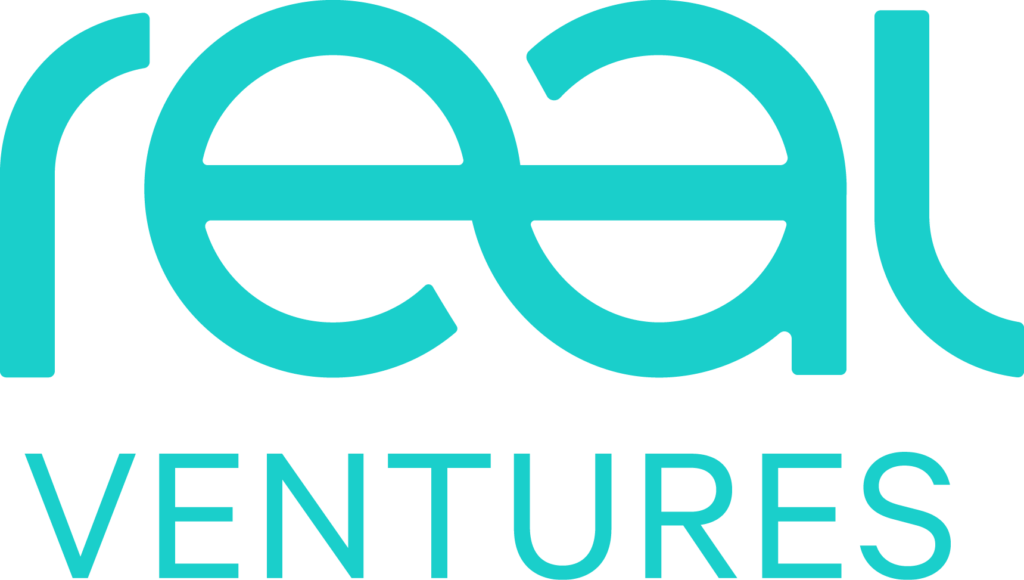Canada’s tech community bands together to weather challenging market conditions as investments return to pre-pandemic levels.
2022 has been a year of recalibration for the Canadian tech ecosystem. Sky-high inflation, rising interest rates, strained supply chains, and geopolitical conflicts like the Russian invasion of Ukraine have contributed to a drastically altered macroeconomic environment and resulted in the first bear market since 2008. After a year of outpaced growth and record-breaking investments in 2021, this landscape of uncertainty caused many investors globally to hit the pause button and exercise more conservative investment practices akin to pre-pandemic trends.
It is not the first time we’ve seen markets take a hit. Real Ventures first launched in 2007, only one year before the last global recession. Since then we, and many of the companies we serve, have experienced ups and downs caused by evolving market conditions. And like the downturn of 2008 and other challenging times faced along the way, this difficult period will pass, and companies who weather the storm will emerge more resilient and gain important learnings.
It’s also important to recognize that while the total amount invested in Canadian companies in 2022 to date is down by 36% compared to 2021, when compared to 2019 investments, they have actually risen by 44%. We recognize that conditions are, in many ways, more challenging today for founders than they were a mere 12 months ago. Still, we prefer to take a glass-half-full approach.
In the face of a bear market, Canada’s tech ecosystem is proving resilient, maintaining our rank of 4th best country in the world to launch a startup. Why?
- Our maturing tech startup ecosystem is fueled by a greater number of repeat founders, start-up executives, and angel investors. These experienced founders and investors continue to re-invest in the ecosystem, creating even more globally competitive tech companies.
- Canada’s abundant AI, tech, and engineering talent. Our country’s three largest tech hubs are each home to top 50 globally ranked universities and boast world-renowned AI research centers like the Vector Institute and the MILA Institute (led by Yoshua Bengio, who is recognized as one of the world’s leading AI experts).
- Canada is well-connected to global markets, is located just north of the world’s largest economy, and we have strong free trade agreements with all G7 countries. In addition, Canada’s ambitious immigration policy and immigrant-rich population (the 2022 census reported that immigrants make up a quarter of Canada’s population) means that selling to global markets comes naturally to Canadian companies run by founders with diverse backgrounds.
Below we map out investment activities reported in Canada’s most prominent tech hubs and the investment trends that defined 2022.
Tech Investments Throughout Canada
Toronto-Waterloo
Investments in Ontario-based companies remained the highest among all Canadian provinces in 2022 with Toronto-based companies receiving $3.5B in capital to date and Waterloo-based companies receiving $848M to date, for a combined total of just over $4.3B.
While the total capital received may seem like cause for concern when compared to 2021 investments, which totaled $8B ($5.6B and $1.4B in Toronto and the Waterloo region, respectively), 2021 remains an outlier year, and one that we don’t believe should serve as a barometer to assess the region’s overall health. Compared to investment dollars received in 2019, investments in Ontario-based companies rose by 87% (capital allocated to Toronto and Waterloo-based companies in 2019 totaled $2.3B).
Xanadu, a full-stack quantum computing and cloud company, is a great example of an organization where leadership demonstrated an ability to adapt to challenging times to meet new market realities. They recently announced a $100M Series C, led by Georgian. Other examples include Clutch, an online car buying platform, that raised $150M in funding in May to expand its inventory. BenchSci, a biotech company that leverages machine learning to advance pharmaceutical research, raised a $63M Series C in January 2022.
Toronto continues to distinguish itself as the top Canadian tech hub and offers an expansive network of incubator and accelerator programs. Established programs include Techstars Accelerator, which launched its first cohort in 2006 and has run 1–2 cohorts a year since. Communitech, an incubator that has supported early-stage tech startups for over 25 years, counts over 1200 members. The DMZ, a world-leading incubator for tech startups around the world, has funded over 700 tech startups that have gone on to raise over $1.85B in funding. Newer programs calling Toronto home include Entrepreneur First, a UK-based founder program that launched its first cohort in 2020, and Antler, which provides an array of services, including a free online platform for new entrepreneurs.
Montreal
Another well-established Canadian tech hub (and home to Real Ventures’ HQ), the province of Quebec saw $2.2B in capital invested across 68 deals to date, most of which was allocated to Montreal-based companies. Contrary to most provinces, the total funding received in Quebec to date has surpassed the amount of funding received in 2021 by 16%. This can be explained by higher rounds sizes across most deal stages — from Pre-Seed to Series D.
Healthtech and SaaS companies received the most significant venture finance. This comes as no surprise, given Montreal has the world’s largest concentration of AI talent and world-renowned research labs. Paper, an edtech platform that provides personalized online tutoring for students, that raised a $343M Series D in February, is a great example among Quebec-based companies that raised funding rounds. Vention, a digital manufacturing automation platform that serves over 3000 clients globally, raised a $123.7M Series C in May. Unito, a SaaS company that allows teams to build custom, real-time two-way workflows across their tools, announced their latest funding in October, celebrating a $20M Series B.
An important event to note in Quebec this year is the passing of Bill 96, which enforces stricter French language laws. The bill has been criticized by several local groups, including Quebec’s Aboriginal and Anglophone communities and the business community. It is a source of concern for entrepreneurs and investors alike in la belle province moving forward. While most recognize the importance and value of protecting Quebec’s French language and culture, this push for more stringent language laws and tighter restrictions on immigration will make it more difficult for Quebec-based tech companies to compete for skilled talent and international contracts.
Vancouver
After experiencing mega growth in 2021 and quadrupling the total funding received by British-Columbia-based companies YOY (from $964.3M across 111 deals in 2020 to $4B across 140 deals), investments in BC saw a cool down in 2022, totaling $855.6M across 66 deals to date.
Factors contributing to the region’s slowdown include BC’s tech startup ecosystem being younger and smaller than Toronto and Montreal’s and closing fewer mega deals. Also, similar to trends observed in other tech hubs, many Series A, B, and later-stage companies that raised significant capital in 2021 opted to restructure and extend their runways to avoid down rounds at lower valuations.
Despite the slowdown, there is much to be optimistic about Vancouver’s growing tech ecosystem. According to the CBRE’s latest Tech 30 report, Vancouver topped the list of most high-tech job growth in North America with a 44% growth rate. According to another report shared by Money.co.uk, Vancouver ranked the 7th tech city in the world based on its world-class universities, access to tech talent, and average compensation for tech workers.
Alberta
Venture investing in Alberta has almost doubled compared to 2021, with $667.1M in venture capital invested to date, compared to $356.7M in 2021. The steady growth of venture investment in the province suggests that hard-won efforts by Canada’s oil and gas capital to diversify its economy are starting to pay dividends and position Calgary as an emerging Canadian tech hub.
In April 2022, Alberta’s government shared a new innovation strategy, which aims to strengthen its growing tech sector and further diversify its overly energy-reliant economy. Another win for Alberta’s tech ecosystem is the attraction of more accelerators like Plug and Play, a Silicon Valley-based accelerator, that set up shop in Calgary in 2021. Other accelerators operating in Alberta include the Alberta Accelerator by 500 (they are currently accepting applications for their next cohort!) and the Alberta Catalyzer by Alberta Innovates, a province-wide program for early-stage founders. These world-class programs and increased funding access will help continue growing Alberta’s budding tech ecosystem.
2022 Investments Trends
Unicorns Clear the Way as Camels Take Center Stage
Canada saw 15 unicorns minted last year, blasting through previous records and representing more than the total number of companies to ever reach the highly sought-after status in the country’s history. Alas, as macroeconomic conditions drastically changed in 2022, Canadian and global investors alike adopted a renewed sense of caution.
In short, the sun set on funding companies with a growth-at-all-cost strategy for the time being. Instead, investors favor companies that adopt a camel mindset, meaning businesses that are quick to pivot and adapt to their changing environment, focused on preserving resources, optimizing operational efficiency, and shoring up capital through sound unit economics and planning tangible paths to profitability.
Plum is a great example of a successful Canadian organization that has taken a camel approach to company building. Before its Seed round in 2019, Plum was a talent acquisition platform. Leadership recognized that this left the business vulnerable during economic downturns, as hiring needs are significantly reduced during these periods.
To safeguard the business and ensure that their solution met a greater number of the market’s needs, leadership reasoned that what was needed was a full suite of solutions covering the entire employee lifecycle, including talent acquisition, internal mobility, leadership potential, succession planning, retention, and much more. This new strategic vision for the company’s future, coupled with the organization’s efficient operations and proven leadership, convinced us to invest in their 2019 seed round. Today, as a result of this strategic pivot, Plum offers a full talent management platform, counts 70+ clients, and has won multiple awards, including the most recent Top HR Product of the Year.
Slowdown in Later-Stage Deals
Downturns in public markets trickled down and made it more difficult for later-stage companies to raise and IPO. As of Q3 2022, the capital invested in later-stage deals saw a 59% decrease, and the number of deals decreased from 79 in 2021 to 42.
Factors contributing to the slowdown include founders raising smaller raises or opting to conserve equity until markets become more favorable. A retreat from foreign VCs and institutional investors also impacted later-stage deals. In 2021, large American investors like Tiger Global Management Inc, Blackstone Group, and Insight Partners all led more late-stage rounds when compared to 2022. Until markets and inflation stabilize, it will remain more difficult for most late-stage companies to raise capital and go public.
Healthy Investments in Seed
Strong investments at the seed stage help ensure a continuously steady pipeline of competitive Canadian tech companies. Canada must continue its efforts to increase the capital available to early-stage tech founders by supporting and attracting more accelerators, incubators, leadership development programs, and early-stage funds.
Haleo Clinic, a healthtech startup focused on improving its clients’ sleep through their virtual care app which connects patients with therapists and self-serve options, is one of many Seed stage companies to raise this year. In July, the company announced a $5.2M Seed extension to expand its team to meet its growing number of patients’ needs. Sollum Technologies, a cleantech company that offers LED multi-zone lighting solutions to grow produce year-round, secured $2.5M to fund their sun-as-a-service project in February this year.
Building a More Diverse and Inclusive Tech Ecosystem
2022 was a year of momentum building for Rep Matters, an initiative founded by Phil G. Joseph and powered by Real Ventures to help connect innovative Black founders with the tech and venture capital ecosystems. This year alone, Rep Matters co-launched a $100k Black entrepreneurship prize at Startupfest, hosted an array of networking events, including the first Rep Matters cocktail (attended by over 150 Black founders and members of the investment industry), a breakfast meetup series in Montreal and Toronto, and secured partnerships with impactful organizations all striving to advance Black tech entrepreneurship, including BKR Capital, FACE Coalition, Futurpreneur, Groupe 3737, Torys LLP, the CDPQ, and The DMZ.
Queertech, a Montreal-based organization founded in 2016 with the mission to queer up the tech ecosystem hosted its first two-day QT Conference. The Toronto event offered LGBTQ2S+ professionals the opportunity to discover career paths in tech.
Layoffs VS Labour Shortages and Canada’s Ambitious Immigration Strategy
It’s been a tough year for tech workers. From early-stage companies to big tech, layoff announcements have dominated the media throughout Q3 and Q4 2022. What brought this on?
Tech adoption across all industries accelerated tremendously as a response to the global remote culture shift following the pandemic outbreak. E-commerce sales in the US increased by 55% during the pandemic, and demand for digital solutions skyrocketed. In response, tech companies engaged in aggressive recruitment campaigns to meet new targets. Things changed when markets faced headwinds throughout 2022. The targets set during peak demand in 2021 were no longer reflective of market demands. As circumstances changed, many tech companies needed to pivot and, in many cases, restructure to meet new realities. This led to mass layoffs throughout all levels of the tech sector.
What’s the silver lining?
- Bootstrapped earlier-stage startups are facing less competition to hire experienced tech professionals and will benefit from the influx of talent hitting the market.
- As tech companies complete their restructuring, new roles will need to be filled to meet objectives adapted to today’s economic climate.
- Sectors outside of tech that have traditionally struggled to hire tech talent (many of whom are struggling with historic labor shortages) will face less competition to hire tech professionals, enabling them to find innovation-driven solutions for their industries’ unique problems.
Staying Resilient in the Face of Challenging Market Conditions
2023 will likely continue to be challenging for tech companies worldwide, with many experts predicting that markets will continue to correct well into the new year. In the face of adversity, we feel it’s more important than ever to focus on community, knowledge sharing, developing our capacity to adapt through increasing self-awareness, and leveraging our strengths to support all ecosystem members. For over two decades, Canada has nurtured and grown a vibrant tech ecosystem with more programs and funds today than at any point in its history. Maintaining our conviction in the power of community will help Canadian tech to emerge stronger and wiser and continue to shine on the global platform.
**********
For more on our thoughts about how to scale your startup, sign up for our newsletter and follow us on Twitter, LinkedIn, and Facebook.




